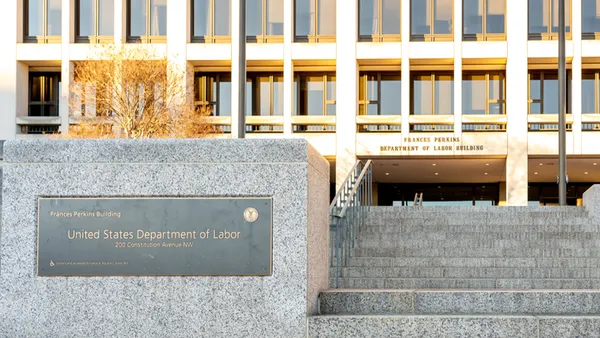Dive Brief:
- Employers doled out an average merit increase of 3.2% (a base salary increase for merit) and an average total bump of 3.5% (all salary increases, including merit, promotional, cost-of-living and other adjustments) in 2025, according to findings from the March 2025 Mercer QuickPulse® US Compensation Planning Survey, released April 24.
- That’s below the 3.3% in merit increases and 3.7% in total raises that employers said they expected to deliver, per Mercer’s November 2024 projections, and under what companies gave in 2024: 3.3% for merit increases and 3.6% in total salary increases, the company said.
- Mercer said the losses indicate “an ongoing decline in annual compensation budgets, suggesting a return to pre-pandemic norms, driven by [a] softening labor market.”
Dive Insight:
“Our latest data indicates a moderation in base pay increases, reflecting the evolving dynamics of the labor market,” Lauren Mason, Mercer’s U.S. workforce solutions leader, said in a statement. “With heightened economic uncertainty, employers are focused on maximizing compensation impact through strategic decisions, such as proactively rewarding high performance.”
In the survey of more than 800 U.S. companies, employers said they expected to promote about 10% of their workforce, up from 8% the previous year, and to award an average raise of 8.5% with promotions.
Among the 44% of companies that rely on a five-tier performance rating system, top performers received average raises of 5.6%, while those who fell in the middle on performance earned 3.3%, Mercer said.
To better address job satisfaction for hourly workers, companies should consider “a comprehensive total rewards strategy that integrates affordable benefits, a positive working environment, and clear paths for skills-based career growth,” instead of relying on minimum wage increases, Mason said.
“By investing in these areas, organizations can improve hourly employees’ pay progression, financial well-being, and overall engagement,” Mason said.
Payscale’s chief people officer previously said 2025 could be a “year of contention” over pay “between employers tightening budgets and employees advocating for fair pay and better working conditions.”
In Payscale’s 2025 Compensation Best Practices Report, organizations identified compensation as a bigger challenge than recruiting or retention, and nearly 1 in 3 of those surveyed cited unfair pay as the primary reason they lost talent.
Pay expectations for recent graduates aren’t being met either, according to an April ZipRecruiter report. About 42% of recent graduates said they didn’t get the pay they wanted in their job search. And soon-to-be graduates said they expected to earn $101,500 on average, while the average starting salary among recent graduates was $68,400, ZipRecruiter found.















